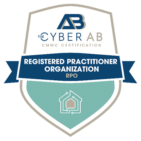CMMC Flow Down Biggest Concerns and Best Solutions
The Cybersecurity Maturity Model Certification (CMMC) Flow Down requirements refer to the obligation of prime contractors working with the U.S. Department of Defense (DoD) to ensure that subcontractors also meet the necessary cybersecurity standards. This ensures that Controlled Unclassified Information (CUI) remains secure throughout the supply chain.

Key Flow Down Requirements in CMMC
Subcontractors Must Meet Applicable CMMC Levels
-
- If a prime contractor is required to achieve a specific CMMC level (e.g., Level 2 or Level 3), then subcontractors handling Federal Contract Information (FCI) or CUI must also meet the relevant requirements.
- The CMMC level that applies to a subcontractor depends on the type of data they handle.
Subcontractors Must Be Identified and Assessed
-
- Prime contractors must determine which subcontractors process, store, or transmit CUI and ensure they comply with NIST SP 800-171 and CMMC standards.
Contract Flow Down Clauses
-
- Prime contractors must include CMMC requirements in their subcontracts, ensuring compliance throughout the supply chain.
- This is typically achieved by incorporating DFARS 252.204-7012, DFARS 252.204-7019, DFARS 252.204-7020, and DFARS 252.204-7021 clauses.
CUI Handling Restrictions
-
- If a subcontractor does not meet the required CMMC level, they cannot receive, process, or store CUI.
- In such cases, the prime contractor may need to limit CUI exposure or implement alternative solutions (e.g., using secure platforms).
Self-Assessments and Certification
-
- Some subcontractors may only need a self-assessment (CMMC Level 1).
- If handling CUI, they must conduct triennial third-party assessments (CMMC Level 2 or higher).
Supplier Risk Management
-
- Prime contractors should monitor subcontractors’ compliance and enforce corrective actions if non-compliance is found.
- Flow-down requirements may include reporting obligations for cybersecurity incidents.
Understanding CMMC Flow-Down Requirements: Prime Contractors’ Biggest Concerns and Solutions
As the Cybersecurity Maturity Model Certification (CMMC) framework becomes a non-negotiable requirement for contractors working with the Department of Defense (DoD), Prime Contractors face the challenge of ensuring compliance not just within their operations but across their entire supply chain.
Handling CUI? Must Comply with CMMC Levels
A critical aspect of this responsibility is the flow-down requirement, which mandates that subcontractors handling Controlled Unclassified Information (CUI) also comply with relevant CMMC levels.

Contract Breaches
Failure to ensure supply chain compliance can lead to contract penalties, security breaches, and loss of DoD business opportunities. Let’s explore the major concerns Prime Contractors have about CMMC flow-down requirements, how they are addressing these challenges, and how working with a CMMC Consultant can provide strategic solutions.
Prime Contractors’ Top Concerns with CMMC Flow-Down
1. Ensuring Subcontractor Compliance
Prime Contractors must verify that all subcontractors, particularly those handling CUI, meet the required CMMC level. This is easier said than done, as many suppliers lack cybersecurity maturity or the resources to achieve certification.
2. Supply Chain Vulnerabilities & Data Breaches
A security gap in a Tier 2 or Tier 3 subcontractor can expose sensitive DoD information, putting national security at risk. A single weak link can compromise the entire supply chain.
3. Flow-Down Enforcement Challenges
Ensuring that subcontractors implement CMMC controls correctly is a logistical nightmare, particularly when dealing with a large and diverse supplier base. Some subcontractors may claim compliance without fully implementing the required security measures.
4. Legal & Contractual Risks
Prime Contractors could face contract violations, lawsuits, or even DoD penalties if a subcontractor fails to comply with CMMC requirements. The liability for non-compliance extends beyond just Prime Contractors’ direct operations.
5. Business Disruptions & Vendor Attrition
Many smaller subcontractors may struggle to afford compliance, which could lead to a shrinking supplier base. This can result in higher procurement costs, supply chain delays, and project disruptions.
6. Competitive Disadvantages
Primes that fail to ensure CMMC readiness in their supply chain risk losing contracts to competitors with better-prepared suppliers.
7. Cost of Oversight & Compliance Management
Managing cybersecurity compliance across multiple subcontractors demands significant time, resources, and financial investment.
8. Unclear Implementation & Regulatory Changes
The evolving nature of CMMC regulations creates uncertainty, making it difficult for Prime Contractors to establish long-term compliance strategies.
Consulting Support for CMMC Compliance
At Core, we offer a modular approach to certification. We break the requirements down into two broad categories: organizational and technical. We provide NIST/CMMC training for your employees, your management, and your IT Team or MSP (if you outsource your IT needs).
We also help you with your guided self-assessment.
We will help you develop your System Security Plan (SSP), Plan of Action and Milestones (POAM), Roadmap, and budget. Core Business Solutions is a NIST/CMMC registered practitioner organization (RPO). Click to view CBS CMMC Consulting Offering Sheet Link.

How Prime Contractors Are Addressing These Challenges
To mitigate these concerns, Prime Contractors are adopting various strategies to enforce flow-down requirements and ensure subcontractor compliance.
✅ Pre-Screening Vendors for Cybersecurity Readiness
Many Primes are now requiring proof of cybersecurity maturity before onboarding new vendors. This includes:
-
- Requesting evidence of existing security policies and procedures.
- Evaluating subcontractors’ NIST 800-171 self-assessments.
- Requiring a Plan of Action and Milestones (POA&M) for vendors that are not fully compliant.
✅ Mandating Third-Party CMMC Assessments
Primes are increasingly requiring subcontractors to undergo third-party CMMC readiness assessments. This ensures:
-
- Objective evaluation of cybersecurity controls.
- Identification of security gaps before contract award.
- Reduced risk of false compliance claims.
✅ Developing Compliance Checklists & Audit Procedures
Some Prime Contractors are implementing internal compliance checklists to monitor subcontractors, including:
-
- Conducting regular security audits.
- Requiring subcontractors to submit progress reports on their CMMC implementation.
- Creating contract clauses that tie payments to CMMC compliance.
✅ Providing Cybersecurity Training & Support for Subcontractors
To reduce vendor attrition, some Primes are offering training programs and cybersecurity workshops to help suppliers understand:
-
- CMMC requirements and implementation.
- Best practices for securing CUI.
- Affordable security solutions tailored for small businesses.
How a CMMC Consultant Can Help Address These Challenges
A CMMC Consultant can help Prime Contractors navigate the complexities of flow-down requirements and ensure seamless compliance. Here’s how:
🔹 Customized Gap Assessments
CMMC Consultants conduct in-depth supply chain cybersecurity assessments, identifying areas where subcontractors are falling short and providing actionable solutions.
🔹 Developing Flow-Down Compliance Strategies
Consultants help Prime Contractors establish structured processes for ensuring that subcontractors meet CMMC requirements, including:
-
- Vendor selection criteria based on cybersecurity maturity.
- Cybersecurity clauses in contracts.
- Automated compliance tracking tools.
🔹 Helping Subcontractors with Compliance
Since smaller subcontractors often lack cybersecurity resources, CMMC Consultants provide:
-
- Cost-effective security solutions tailored for small businesses.
- Assistance with security documentation (e.g., System Security Plans, POA&Ms).
- Guidance on affordable cybersecurity tools.
🔹 Reducing Risk & Liability
By ensuring that all subcontractors achieve CMMC certification, consultants help Prime Contractors avoid penalties, contract disputes, and supply chain disruptions.
Example of CMMC Flow-Down in Action
Imagine a Prime Contractor, ABC Defense Corp, winning a $50 million DoD contract requiring CMMC Level 2 compliance. They work with dozens of subcontractors, some of whom handle CUI.
Here’s how they enforce flow-down:
-
- Vendor Pre-Screening: ABC Defense requires all subs to provide a self-assessment of NIST 800-171 compliance.
- Compliance Tracking: They use a cybersecurity management tool to monitor supplier compliance progress.
- CMMC Consultant Support: A consultant helps struggling subcontractors implement security controls.
- Security Audits: ABC Defense performs quarterly compliance checks to ensure ongoing adherence.
Conclusion
For Prime Contractors and subcontractors, ensuring CMMC compliance across the supply chain is a high-stakes challenge, but with the right strategies and expert guidance, it can be effectively managed. Working with a CMMC Consultant provides structured compliance roadmaps, risk mitigation strategies, and technical support—helping Primes and subcontractors maintain strong, secure, and compliant supply chains.




